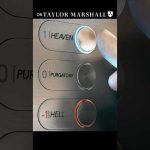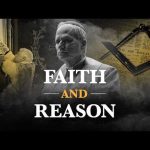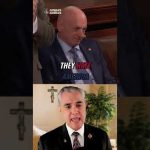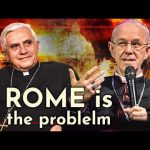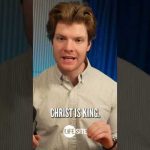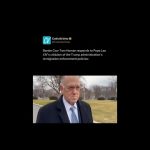Happy Friday friends,
As all of you know, JD and I have been in Baltimore this week for the USCCB autumn assembly, and there is a lot of news to get through.
So, I’m not going to bore you with a bunch of throat clearing, let’s just get to it.
The News
In Baltimore this week, the public sessions of the USCCB assembly opened with state-of-affairs speeches from the apostolic nuncio, Cardinal Christophe Pierre, and the conference president, Archbishop Timothy Broglio.
It was the sort of speech, one bishop remarked to us afterward, which ordinarily earns the newly-minted cardinal a standing ovation from the conference. But, while the bishops’ applause showed courtesy and appreciation, the bishops remained seated. Many of the bishops in Baltimore told us — before and after Tuesday’s opening public sessions — that the mood of the conference was not with the nuncio, as it normally is.
Several told us they had been offended by a recent Pierre interview, in which the cardinal was sharply critical of the U.S. bishops, priests, and laity, and seemed to paint his impressions of American Catholicism with a very broad brush.
The depth of feeling was made even clearer when Archbishop Broglio followed Pierre’s speech with a pointedly positive affirmation of the Church in America, her ministers and faithful, in near opposite terms to the nuncio’s recent critical interview.
“Whoever has ears ought to hear what the Spirit says to the Churches,” Broglio said to open and close his speech.
If his meaning was too coded for some, he made it explicit in a press gaggle afterward.
You can read all about it here.
—
The nuncio is well known for traveling constantly, cheerfully, even enthusiastically, touring seminaries, parishes, and pastoral projects in dioceses up and down the country.
But after giving an unvarnished opinion of the U.S. bishops, it will likely take some effort by the cardinal to win them back over. And, at 77 years old, he’ll need to work fast to do it.
That would be a waste — especially on the eve of considerable turnover among the American episcopate.
—
It would be a mistake to think the bishops’ conference is all personalities and politics. Several bishops I spoke with told me that they have found the assemblies much improved in recent years, with increased time made for communal prayer, and now regular space devoted to fraternal dialogue beyond the regional groups they’ve long had meetings with.
It’s all very, well, synodal, and it has been getting more so for a while now, and that seems to be good for the bishops and the Church.
On Tuesday, those bishop held a consultative vote to advance the beatification cause of Servant of God Isaac Thomas Hecker, who founded the Missionary Priests of St. Paul the Apostle, better known as the Paulists.
His life and his cause for beatification are worth reading about, and drawing encouragement from.
—
On Wednesday, the Dicastery for the Doctrine of the Faith released a note signed by its prefect, Cardinal Fernández together with Pope Francis, calling for a “coordinated strategy” to oppose Freemasonry in the Philippines.
The DDF identified “a large number of sympathizers and associates who are personally convinced that there is no opposition between membership in the Catholic Church and in Masonic Lodges.” That, the dicastery wrote, is simply not acceptable.
This is a subject on which I happen to have a little passing interest, so believe me when I say that it is surprising to see the DDF taking the matter so seriously, even more interesting that the dicastery has publicized its letter.
—
The Church in Ghana needs “aggressive catechesis,” the president of the country’s bishops’ conference said this week, after figures showed a rapid decline in Catholic practice.
Ghana’s statistics run contrary to the broader narrative of the Church in Africa.
According to the most recent edition of the annual “Statistical Yearbook of the Church,” the number of Catholics on the continent rose from 257 million in 2020 to 265 million in 2021.
So what’s different about Ghana, and what are the bishops going to do about it? Read all about it here.
—
Back in Baltimore on Wednesday, the bishops approved a new introductory letter and media packet to accompany “Forming Consciences for Faithful Citizenship,” their document meant to help Catholics make up their minds on how to vote.
We got hold of the amended text before it was made public, and reported on the most notable change in the document, the bishops’ language on abortion.
Ahead of the assembly, JD wrote that the draft language appeared to be carefully chosen, with abortion being spoken of as “a preeminent priority,” rather than a phrasing used in previous years — “the preeminent priority” —- which sparked sharp exchanges at a previous meeting.
Swapping the definite for indefinite article seemed, as JD wrote last week, a carefully crafted compromise, but would it pass muster with the bishops?
In the end, we learned, a number of bishops urged different language, and the conference amended the text to call abortion “our preeminent priority” — which is how the final text reads.
The bishops are due to renew the entire text of “Faithful Citizenship” after the current election cycle. It will be interesting to see how the conference approaches the task of a page-one rewrite for its lengthy voting document, rather than just updating an introductory letter to it.
—
Also in Baltimore, though not attending the conference, was the recently removed former Bishop of Tyler, Joseph Strickland.
Opting not to go into the hotel and take part in the assembly, though the conference made clear he could do so, Bishop Strickland remained outside the building, speaking to and praying with supporters.
But what brought them there? What do they see in Bishop Strickland which compels them to turn out for him? We went out and asked them — and we ended up having a substantive conversation with Bishop Strickland himself.
It was an interesting crowd — religious sisters, families with kids, and a few obvious eccentrics, each there for their own reasons, but brought together by the ex-bishop of a small Texas diocese.
As the premiere Catholic liberal arts university in the country, the University of Dallas is dedicated to the recovery of the Christian intellectual tradition and the renewal of Catholic theology – in fidelity to the Church and in constructive dialogue with the modern world. Find out more about our Catholic identity at udallas.edu/pillar.
Lesser evils or greater goods?
Speaking to press after the adoption of the “Faithful Citizenship” text, drafting committee leader, and conference VP Archbishop William Lori explained the bishops’ chosen language on abortion, emphasizing the particular horror of abortion as the deliberate destruction of innocent human life.
Of course, the archbishop said, this doesn’t mean that other political issues shouldn’t weigh in a Catholic’s political calculus, and the urgency of abortion as an issue does not diminish the gravity of other serious moral issues.
And, the archbishop said clearly, it isn’t the bishops’ job to tell Catholics which candidates to vote for. He’s right, of course, and the purpose of “Forming Consciences” is right there in the title — to equip Catholics to make their own prudential judgments.
But what struck me, watching Lori go back and forth with reporters on subjects like the treatment of migrants, racism, and climate change, was the general acceptance that, in the end, people either have to vote for this guy or for that one, even if both stood on political platforms with some obviously evil planks.
If the bishops’ document is received primarily as a help for Catholics to choose between two evils, that isn’t great.
At the technical and moral level, voting is a positive act of affirmation. Even if we think of it in terms of not the other guy, that isn’t the act of the will we make in the polling booth — we affirm, we actively choose the one whose name we check a box for.
Allow me to editorialize on that for a bit. That’s what these newsletters are for.
Habituating yourself to affirming an evil, even one you’ve discerned in good faith to be the least worst, strikes me as how consciences are coarsened, not formed. And it seems obvious to me that decades of expecting, even helping, Catholics to compartmentalize and relativize basic moral truths to accommodate a political decision explains a lot about the polarization everyone sees and laments at all levels of the Church in this country.
When the bishops do begin their wholesale revision of “Forming Consciences” after the next general election, it’s my sincere hope that they will opt for the prophetic over the pragmatic — and take as their starting point the moral repugnance found in both major political parties in this country.
I suspect there would be a lot less episcopal discussion about whether to call abortion “a”, “the”, or “our” preeminent priority relative to other moral issues if there was no risk of Catholics reading it as a coded endorsement of one party over another.
How much authentic and healthy unity could the bishops actually find among themselves, and foster among the faithful, if they started from the explicit and obvious premise that our current political order is a moral calamity?
What if they focused their document on forming Catholics’ consciences to demand, first and last, the good and the true from our politics, instead of suppressing their urge for both to accommodate a false choice between evils?
For years, polling has shown Catholics tend to split between the parties almost exactly in line with national trends. The obvious takeaway from that, it seems to me, is that the faith isn’t informing the Catholic vote — political partisanship is dividing the faithful.
That, I would submit, is a crisis of conscience worthy of the bishops’ attention.
The Bishop of Strickland
While the bishops prayed, discussed, and resolved inside the conference hall, Bishop Joseph Strickland remained outside, choosing neither to attend the assembly — as is his prerogative as a former diocesan bishop — nor to stay entirely away either.
His removal last week, on the eve of the conference assembly, has been a popular talking point, both in Baltimore and far beyond.
Others have argued that while Strickland has made a series of provocative statements about the pope in the past, his removal from office followed an apostolic visitation in which questions were asked about his actual administrative leadership in the Diocese of Tyler, Texas.
But, of course, Rome has not made any clear statement on the reasons for Strickland’s sacking last week, or offered any real detail on what canonical process he was afforded, if any. This does seem to fit within a notable pattern in the Francis pontificate.
In 2016, the pope created a process for removal of a bishop should his ministry be deemed harmful — and criteria to evaluate that. But that process has not been used in the case of bishops removed from their dioceses in recent years, including Strickland.
In general, I think it is bad for the rule of law in the society of the Church to create processes and then not use them, especially when those processes are promised to provide a measure of justice for those impacted by them. And I think that recent trends in the Vatican’s treatment of diocesan bishops could become a countersign to the teaching of the Second Vatican Council.
But in the particular case of Strickland, the Vatican’s approach has also offered no real resolution to what many bishops privately see as one of the many problems with his ministry — that it seems to be personality-driven, and directed by the bishop’s own instincts and priorities. That Strickland is, in short, a Lone Ranger, even when he’s operating in the territory of another bishop.
Now untethered from the Diocese of Tyler, and without any restriction on his status or movements, the bishop is his own man, free to wander where he will, at the head of whatever flock gathers behind him — a personal Diocese of Strickland, neither in the bishops’ conference nor fully out of it, but hopping across the bishops’ backyards.
It’s a situation the bishops won’t thank Rome for having created. And as fringe figures like the suspended priest James Altman are drawn to Strickland’s orbit, it’s an open question how long it can be left unresolved.
Good company
Wednesday night was, as many of you know, our USCCB live recording of The Pillar Podcast.
By custom, we have always hosted these live shows in local dive bars, institutions near and dear to my heart.
What I like most about dive bars is that good ones offer what I consider to be the best of all social settings.
As a rule, I’m actually fairly shy. I’m uncomfortable in crowded rooms of new people, not because I’m uncomfortable about them, but because I feel uncomfortable about myself around people I don’t know.
In a good dive bar though, you’re free to sit quietly, to enjoy the often raucous society of others as a spectator and, when you want, to join in anonymously. Dive bars are one of the last places left where you can strike up a conversation with a stranger and not be immediately asked for your name and biography, but simply enjoy each other’s company without expectations.
I’ve had many such experiences over the years, including at the bar where we had the show on Wednesday. Those relatively anonymous conversations don’t have to be shallow, either. Often I’ve ended up praying for, or even with, the people I’ve met because, perhaps counterintuitively, people feel less defensive and fearful of being judged by someone they’ve just met and will never see again, and are free to speak honestly.
All this is to say that my experience Wednesday was something rather different — but in a very good way.
Todd Conner’s was busy when we arrived, and downright crowded by the time we were set to kick off the recording. I met a lot of new people, every one of whom knew who I was before I’d ever laid eyes on them.
It was the least anonymous I have ever felt in a bar.
It’s the sort of situation I’d normally run screaming from, but instead I had a fabulous time — especially in the talking with the people who came, before and after the show.
We spoke about the Church, our journeys of faith, and our families. But we also talked about watches, sumo wrestling, cricket, and a dozen other pet fascinations, which the people I meet rarely share.
It wasn’t what we talked about that made the evening great, it was the how. Everyone there shared an attitude, an openness, an expectation that they’d be met and welcomed as friends, because our common faith demands of us first that we love God and second each other.
There was communion there, in a bar, among strangers. I’m profoundly grateful for that, and for the work we’re able to do here at The Pillar which served as the catalyst for it. It is a gift and a grace.
So to everyone who came, thank you. And to all of you reading who subscribe and are helping to build this community, thank you, too.
See you next week.
Ed. Condon
Editor
The Pillar
As the premiere Catholic liberal arts university in the country, the University of Dallas is dedicated to the recovery of the Christian intellectual tradition and the renewal of Catholic theology – in fidelity to the Church and in constructive dialogue with the modern world. Find out more about our Catholic identity at udallas.edu/pillar.

